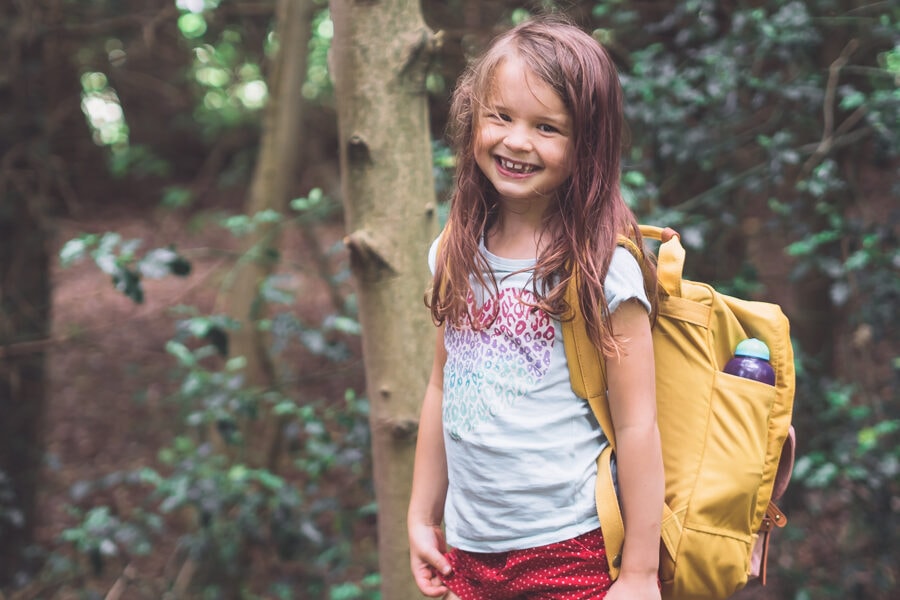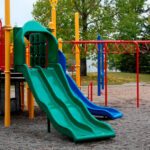We often hear that children spend too much time indoors, playing games and watching cartoons for several hours a day. In the 21st century, this behavior received a professional name – nature deficiency disorder which contributes to the diminished use of the senses, attention difficulties, conditions of obesity, and higher rates of emotional and physical illnesses.
Many parents feel that playing indoors is safer, and they will know where their children are at all times. That is why scientists around the world warn them and point out that for proper development it is necessary for children to be surrounded by greenery and that time spent in nature will have a positive effect on their development and their health.
Access to green space is linked to a child’s well-being. Children must spend at least one hour a day engaged in vigorous physical activity, which includes running, climbing, and jumping. Don’t fail to encourage your child to spend time outside every day, where he can vent his energy.
Movement Encouraging
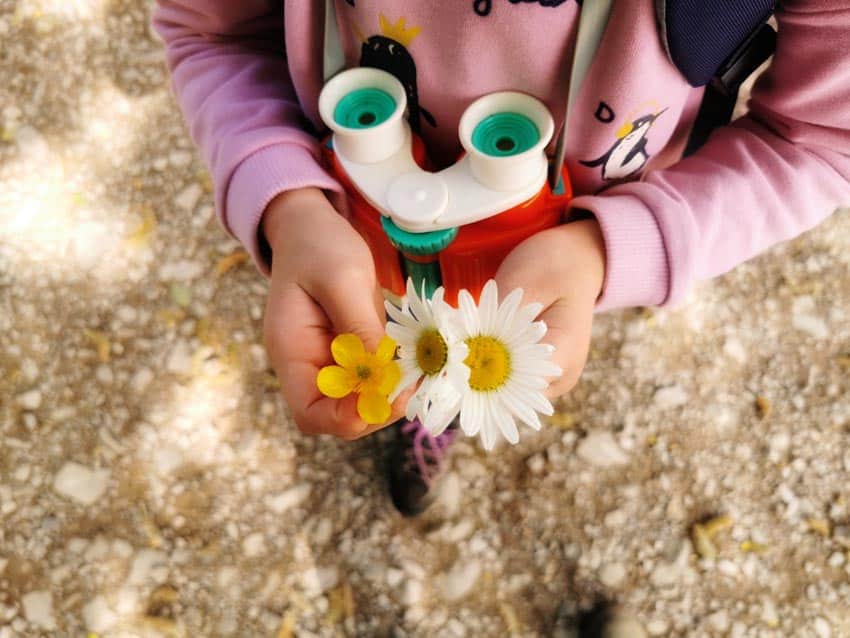
Every nature walk requires movement, unlike sitting in front of the TV or looking at the phone. Your child doesn’t have to join the local soccer team or ride a bike every day – it’s enough to take a walk together in the park or in the woods every day. Walking is not only an exercise for the body, but also for concentration.
Building self-confidence
There are countless games in nature that a child can independently invent and design, whether they are playing in the park, yard, or on a nearby lake. The ability to control one’s own activities and develop respect for nature help build self-confidence.
Development of creativity and imagination
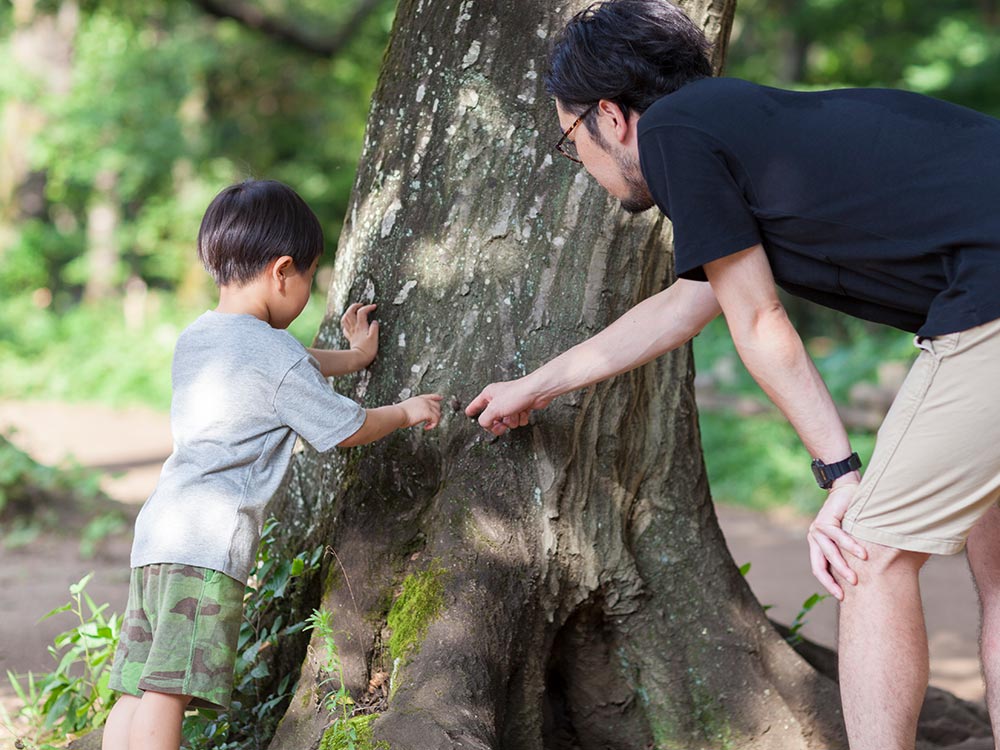
Kids have an inextinguishable resource of energy when they are engaged. The solution to an apathy-free child is giving them something to do. And Mother Nature has provided us with an abundance of fascinating organisms that will keep children engaged – with a little invention.
Playing in nature, as well as nature walks encourages children to design all activities themselves and fully explore their environment. In nature, an ordinary rod becomes a magic wand, a broom handle, or a telescope, while an ordinary bush easily turns into a perfect hiding place, cave, or cage.
Outdoor play gives the child creative freedom, allowing him to shape his environment according to his own imagination.
Learning responsibility
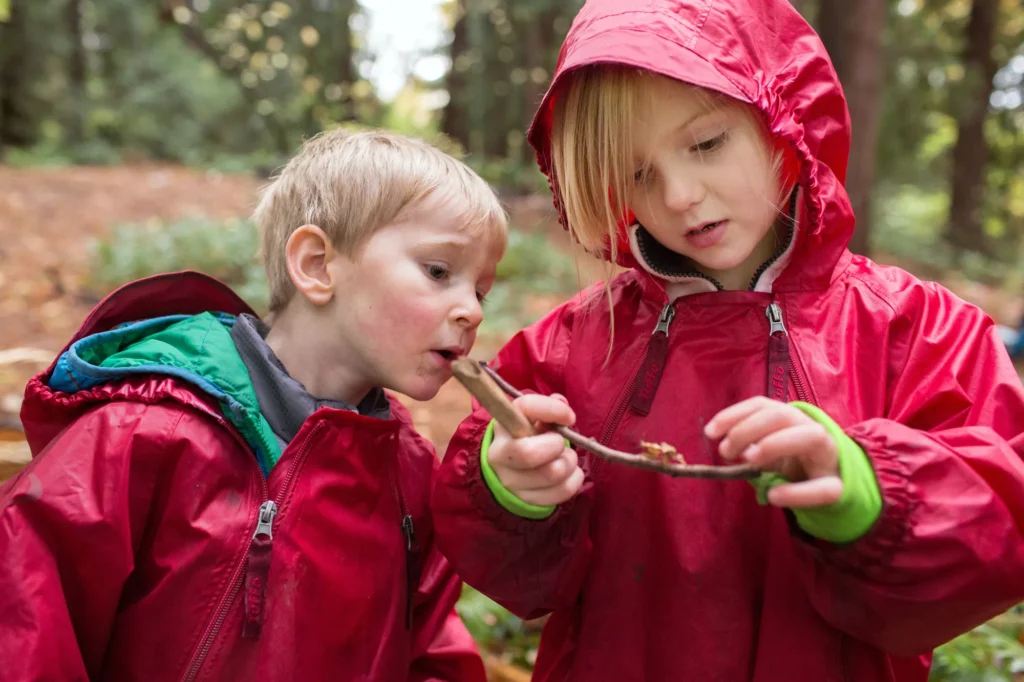
When we teach children to care for animals and nature from an early age, they will always know what happens if they forget to water a plant or that a flower will wither when they pull it out of the ground.
Being in nature helps us understand the importance of the world around us, and often encourages us to treat our environment with care. Generations to come will likely have to deal with global warming and other extreme climate changes.
Benefits for physical and emotional health
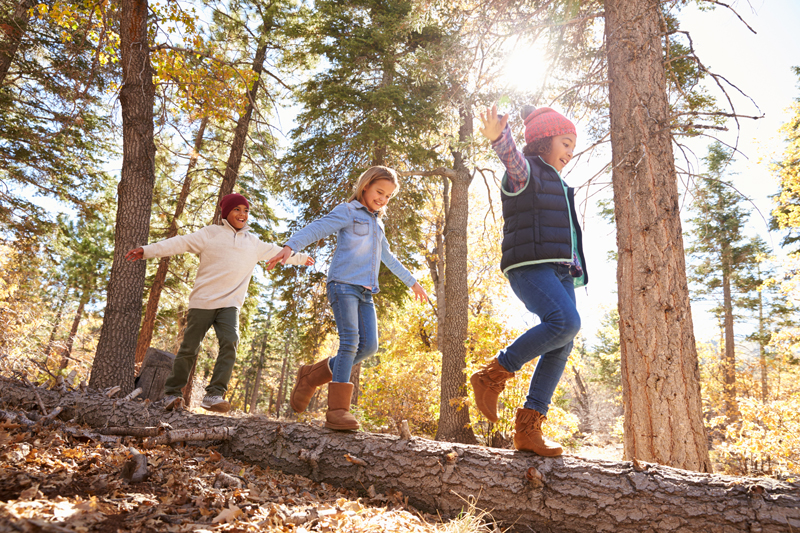
Playing outdoors reduces attention deficit hyperactive behavior disorder, relieve stress and anxiety. Stimuli such as the sound of wind in a treetop, the touch of sand seeping between our toes, or the warmth of the sun’s rays on bare skin are thought to trigger sensory activation that encourages a reduction in nervous tension.
Life Lessons
The stories and adventures that children encounter in different children’s books are worth the time spent and shared with their parents and siblings. Whether children embark on adventures about a dream, aliens, competitive events, fights, or crimes, there is something to share with friends and family. They absorb fundamental life lessons that can enhance their lives immensely as they grow older.
These lessons can make children lifelong readers. Whether terrifying or fascinating, lessons shared from adventurous children’s books expand their experiences, wisdom, and depth of information. So, feel free to explore different books with your kids and pick the best ones to create positive lasting impressions.
In addition to this, experts believe that being outdoors helps the development of immunity, thanks to factors such as the indispensable vitamin D. Nature walk encourages children to think and stimulates curiosity. During their stay in nature, they will ask many questions and want to know how life on earth works.
Imagination, as well as interest in the events around them, are natural abilities of a child. These characteristics should not be allowed to atrophy. Give yourself and your child the opportunity to be mesmerized by the events around you.

